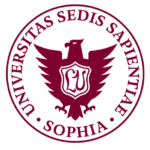Autonomous Driving Control Benchmark Challenge
Announcement
(i) The challenging results will be only presented by poster.
(ii) There is no regular paper submission. Instead, a special issue in the journal “Unmanned Systems” will be organized.
Goal
Autonomous and electrification are two important trends in the field of the automotive industry, and motion control for electrified vehicles is a fundamental technology to implement autonomous driving. However, in the academic field of control and decision, this issue has not attracted much attention although this problem is tackled in the last few decades in the field of vehicular engineering.
The purpose of this benchmark problem is to provide a platform for students and younger researchers to challenge the issues of next-generation autonomous driving control, and exchange the frontier research results in automotive system control and optimization. This benchmark problem provides a simple, yet meaningful, motion control problem formulation for four in-wheel motor-actuated electric vehicles, which is motivated by the fundamental technology of autonomous driving. The team of organizers consists of experts of industrial researchers in the academic field of control.
For the detailed problem description, please download the technical paper [pdf], and the flyer of Call for Challengers [pdf].
Organizers
- Yutaka Hirano, HIRANO Research Labo, Tokyo, Japan
- Rui Gao, Modelon K.K., Tokyo, Japan
- Junichi Kako, Toyota Motor Corporation, Shizuoka, Japan
- Fuguo Xu, Chiba University, Chiba, Japan
- Tielong Shen, Sophia University, Tokyo, Japan
Procedure
- All challengers must register first to acquire the simulation platform and free licenses of Modelon (one year). Apart from Modelon, MATLAB R2022b or later releases is necessary for control module design.
To register, please send the Benchmark_Register [xlsx] with your team’s and your PC's physical address information to Dr. Fuguo Xu by [email protected]
- The simulation model files (Modelica and Simulink models) can be downloaded here or using the (Simulation Models) button on the right column.
- Submission and presentation of challenging results
(i) An interactive session will be organized at the exhibition corner of IEEE CDC 2023. Participants will be asked to submit a one-page poster on their challenging results. The deadline for poster submission is November 30th, 2023. On the other hand, the information of poster paper, including title, authors and abstracts, should be submitted in advance. The deadline of this submission will be announced later.
(ii) A special issue in the journal “Unmanned Systems” (https://www.worldscientific.com/worldscinet/us) will be organized. The challengers will be invited to submit their results to this special issue. The detailed submission information will be announced later.
- To attend the poster presentation, at least one full registration must be conducted with the registration policy of IEEE CDC 2023.
- On-site testing will be held for the evaluation of proposed control schemes.
- Download test route or click the corresponding button in the right column of this webpage.
- Attending this on-site testing is optional. But, the score of testing will be considered in the Award selection.
Contact
Please contact Dr. Fuguo Xu by email: [email protected] for registration and request the download link of the simulation platform.
Important Dates
- Challenge announcement: April 1st, 2023
- Poster’s information submission: September 1st, 2023
- One-page poster submission: November 30th, 2023
Debug Info and User FAQ
Please download it using the button on the right column.




